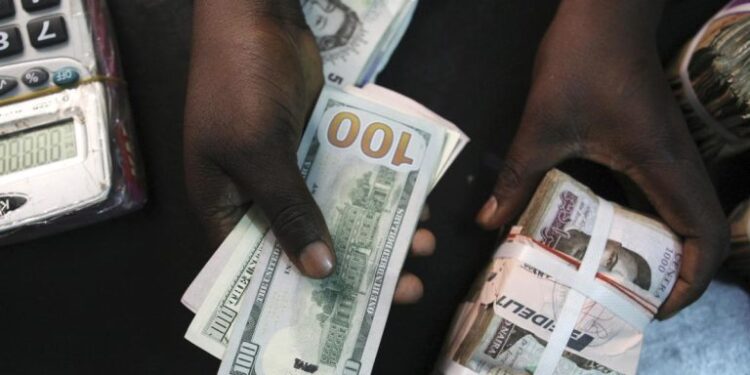The exchange rate for the Dollar to Naira (USD to NGN) continues to fluctuate, particularly in the parallel market, also known as the black market.
As of Monday, 13th January 2025, the Bureau De Change (BDC) sources report that the buying rate for the dollar is ₦1660, and the selling rate stands at ₦1665 in Lagos.
Black Market Exchange Rate (Parallel Market)
– **Buying Rate:** ₦1660
– **Selling Rate:** ₦1665
The black market exchange rate is typically higher than the official rate set by the Central Bank of Nigeria (CBN), as the market operates outside the official channels.
The Central Bank of Nigeria, however, does not officially recognize the parallel market and urges individuals to carry out foreign exchange transactions through licensed banks.
CBN Exchange Rate Today
– **Highest Rate:** ₦1550
– **Lowest Rate:** ₦1543
The official rates set by the Central Bank of Nigeria are generally lower than the rates in the black market, reflecting the government’s efforts to stabilize the Naira and discourage reliance on informal forex trading channels.
However, these official rates are often not as accessible for the general public, as many Nigerians prefer the parallel market for quicker transactions.
Factors Influencing Exchange Rates
Several factors impact the exchange rate between the Dollar and Naira, including:
– **Inflation rates:** Inflation rates in both the US and Nigeria affect the strength of the Naira. A higher inflation rate in Nigeria compared to the US can lead to a weaker Naira.
– **Oil Prices:** Nigeria is a major oil exporter, and the value of crude oil affects the country’s foreign exchange earnings. A rise in global oil prices generally strengthens the Naira, while a decline weakens it.
– **Foreign Reserves:** The level of Nigeria’s foreign reserves, which are held by the CBN, also plays a role in stabilizing the exchange rate. A lower reserve puts pressure on the Naira and may contribute to a higher black market rate.
– **Government Policies:** Policies set by the CBN and the Nigerian government, such as restrictions on access to foreign currency or the introduction of a currency redesign policy, also influence the exchange rate.
CBN Forex Policy
In recent times, the CBN has implemented policies to curb the disparity between the official and parallel market exchange rates. These measures include encouraging Nigerians to access foreign currency through licensed banks and official channels. Despite these efforts, the parallel market remains a popular choice for many who struggle to access forex through banks.











